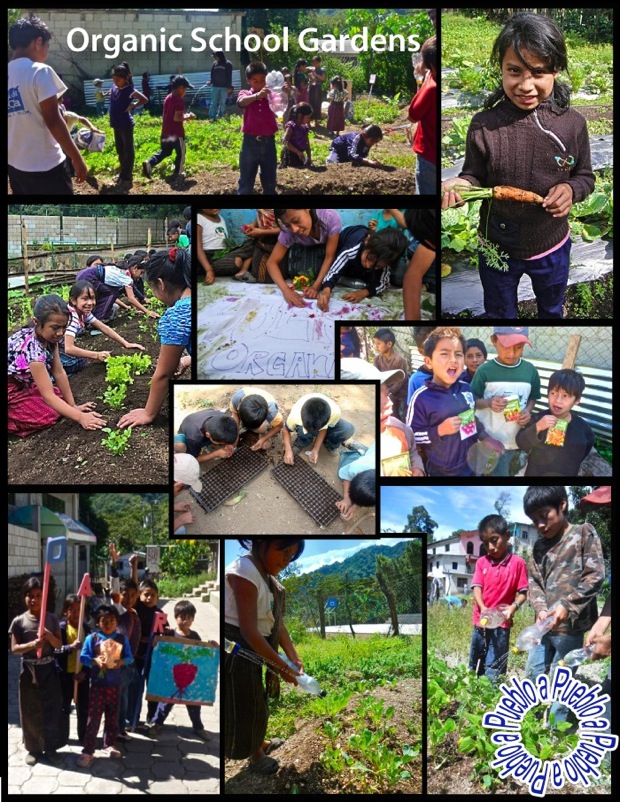The Specialty Coffee Association of America (SCAA) is presenting its 2013 Sustainability Award to Pueblo a Pueblo, based out of Bethesda, Maryland, for the Organic School Garden Project. The annual award honors individuals, businesses and organizations in the specialty coffee industry that have created innovative projects to expand and promote sustainability.
The Organic School Garden Project involves training teachers and children in Guatemala on organic gardening for food staples, which have become harder to come by in farm areas where coffee as a cash crop dominates the landscape. Here’s more from the SCAA:
The project addresses the issues of health and malnutrition among primary school-aged children. In Guatemala, 50% of children under the age of five are malnourished: the highest rate in Latin America and the fifth highest in the world. “In a region of the country where the production of coffee has become an increasingly important income generating crop and means for families to earn a livelihood, food security has become increasingly challenging,” says Rosemary Trent, Executive Director of Pueblo a Pueblo. “Coffee growing families are often unable to buy the daily staples they need for a healthy and nutritious diet. The impact of the lack of resources is severely felt in the rural areas of Guatemala, where chronic malnutrition is widespread. Local families commonly consume only staple grains like rice and maize. Good health depends on dietary diversity—having access to nutrients like protein, as well as vitamins and minerals from fruits and vegetables. Food insecurity worsens during the “thin months” los meses flacos, when money earned during the coffee harvest runs out, work is scarce and families can’t afford food.”
Pueblo a Pueblo’s focus on access to food and education addresses child health, hunger and nutrition over both the short and long terms. Additionally, this program provides a safety net for school children by providing a complementary meal each school day. The two pronged approach alleviates short-term hunger in children while reducing longer term food insecurity and malnutrition through comprehensive education and training.
To date, 1,239 total direct participants (primary school-aged children and teachers) have directly benefited from the Organic School Gardens project. The project also benefitted an additional 24 teachers from 14 municipal schools through teacher training.
Nick Brown
Nick Brown is the editor of Daily Coffee News by Roast Magazine.







Comment